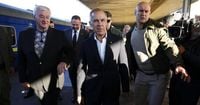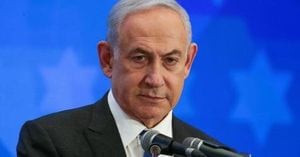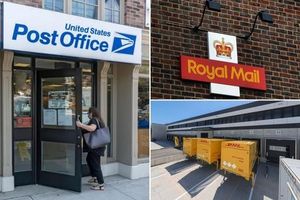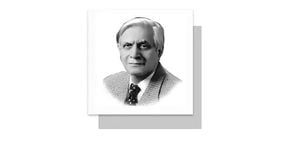Canadian Prime Minister Mark Carney marked his first official visit to Ukraine on August 24, 2025, delivering a message of unwavering support and tough resolve during a time of war and uncertainty. Standing shoulder to shoulder with Ukrainian President Volodymyr Zelenskiy in Kyiv’s historic Sophia Square, Carney addressed the nation on its Independence Day, vowing that Canada would back Ukraine’s pursuit of peace—but only on terms that would ensure its security and sovereignty.
Carney’s visit, his first to the embattled country since winning office earlier this year, came at a critical juncture. The Russian invasion, launched by President Vladimir Putin in 2022, has now dragged on for more than three years, leaving devastation in its wake and pushing Ukraine’s allies to reaffirm their commitments. According to Bloomberg, Carney minced no words about the nature of the conflict, describing Putin’s campaign as “a horrific act of aggression, a maniacal quest to recreate a history that itself was filled with injustice.”
“Putin can be stopped,” Carney declared in his Independence Day speech, as reported by CTV News. He emphasized that peace in Ukraine could only be secured “through strength,” and insisted that any future deal with Russia must not rest on mere good faith. “Any peace accord with Russia cannot be met simply with a ‘trust and verify’ approach,” Carney said. “We must deter and fortify, deter Russia from thinking that they can ever again threaten Ukraine’s and Europe’s freedom by reinforcing the strength of Ukraine’s armed forces.”
Carney’s remarks underscored a growing consensus among Ukraine’s Western allies: Russia’s repeated breaches of trust have rendered traditional diplomatic assurances insufficient. “Putin, who’s broken his word repeatedly, can’t be trusted, so true peace requires security guarantees for Ukraine provided by allies,” Carney stated, according to Bloomberg. The prime minister painted a picture of an increasingly isolated and weakened Russia, noting that “Russia’s economy is weakening, with Putin becoming more isolated and the alliance of nations that support Ukraine hardening.”
In a nod to international cooperation, Carney praised former US President Donald Trump’s role in shaping the current diplomatic landscape. “I applaud the leadership of the transformative US President Donald Trump in creating the possibilities for peace,” he said. The day’s events in Kyiv were attended by a roster of international figures, including US General Keith Kellogg, who serves as presidential envoy for Ukraine, as well as defense ministers from Sweden, Latvia, and Denmark. Carney and Zelenskiy were scheduled to hold a bilateral meeting and take questions from the press later in the day.
Canada’s commitment to Ukraine extends well beyond rhetoric. During the Group of Seven leaders’ summit in June, Carney outlined a C$2 billion support package for Ukraine. More than C$1 billion of that sum is earmarked for drones, ammunition, and armored vehicles, while C$680 million will fund a NATO-prioritized package of urgently needed military equipment, slated for delivery in September. Carney also announced that Canada would finance the joint production of defense materials—including advanced drones from Canadian suppliers—and provide support for emergency medical care, shelter assistance, and cyberattack prevention.
“When peace comes, we must fortify Ukraine by rebuilding your cities, expanding your industries, developing your resources, in creating the foundations for true prosperity,” Carney told the Ukrainian people. “And when that peace comes—and it will come, that day will come—Canada will be there.”
Canada is a member of the so-called “coalition of the willing,” a group of about 30 nations that have pledged to defend Ukraine. Ottawa has not ruled out sending troops to help enforce any future peace agreement, though Carney stressed that allies’ primary focus should remain on providing training and weapons for Ukrainian soldiers. Canada’s own military faces significant constraints: a shortage of qualified troops, ongoing domestic emergencies, and the commitment to maintain a brigade in Latvia all limit its capacity to deploy large numbers of soldiers abroad. As a result, Canada’s support has so far centered on training, financial aid, and welcoming refugees.
The United States, for its part, has ruled out sending troops to Ukraine but remains open to deploying air defense systems. Still, the path to a lasting peace is riddled with obstacles. The Kremlin continues to demand that Kyiv cede control over vast swathes of eastern Ukraine and has flatly rejected the prospect of NATO troops on Ukrainian soil.
Carney’s speech also touched on humanitarian concerns, pledging that Canada would “intensify its work to return Ukrainian children abducted by Russia.” In addition, he highlighted Canada’s efforts to support emergency medical care and shelter for those affected by the war, as well as initiatives to bolster Ukraine’s cyber defenses.
Beyond military aid, Carney pointed to Canada’s broader ambitions for postwar reconstruction and economic partnership. In June, Canada signed a security partnership with the European Union, marking a first step toward jointly procuring defense equipment with EU nations. Following his visit to Kyiv, Carney planned to travel to Warsaw, Berlin, and Riga, Latvia, where he would meet with government officials and business leaders to promote Canada’s defense sector and its critical minerals, nuclear, and aerospace industries.
Despite its status as a longstanding military spending laggard, Canada is now joining European leaders in pledging major new investments in defense and security. Carney’s tour of European capitals is intended not only to strengthen military ties, but also to position Canadian industry as a key partner in the continent’s security and economic future.
For many Ukrainians, Carney’s words offered reassurance that the world has not forgotten their struggle—or the high stakes involved. The message was clear: Canada stands ready to help enforce any peace deal with Russia, not with blind trust, but with deterrence, fortification, and a commitment to Ukraine’s long-term prosperity and security. As the war grinds on and diplomatic efforts continue, the resolve of Ukraine’s allies will be tested. But on this Independence Day, at least, Kyiv could count on an unambiguous pledge of support from Ottawa.




